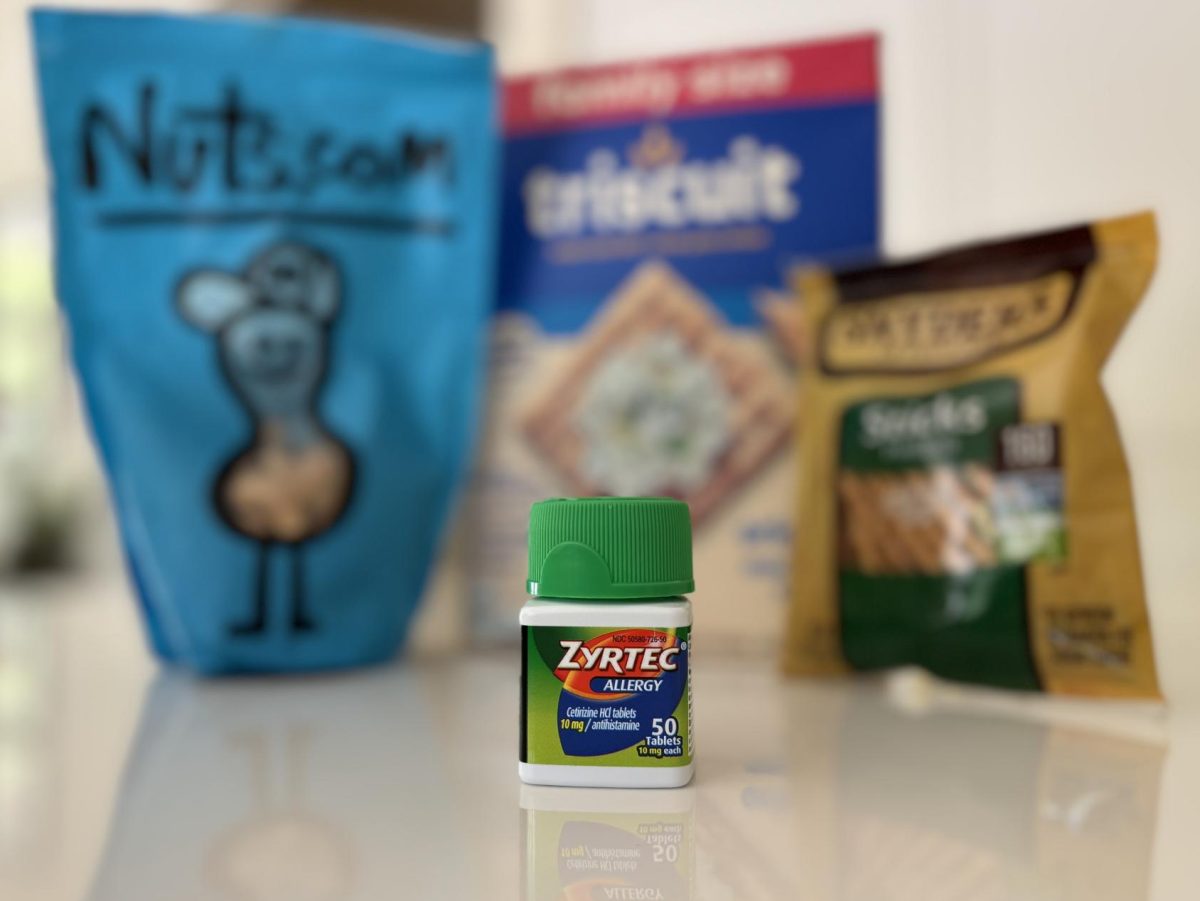EL: Hi, I’m Erin.
EY: Um, and, um and I’m uh, I’m Elizabeth.
EL: “Um?” Don’t you know what your name is?
EY: Well I do, but likeeeeeeeeeee,
.
.
.
EL: Filler words can be heard around campus whenever people are talking, from casual conversation to class presentations.
EY: Me personally, whenever I open my mouth, one of these three filler works tend to come out: wait, uh, and I think. Uh . . . oh and there I go again. According to a Grammarly article about filler words, filler words are used to stall for more time. This stalling for more time can be for several reasons: it could be for the speaker to organize their thoughts, or it could be the speaker’s hesitation to say something.
EL: That might be true, but at this point, I feel like using filler words is more of a habit for me than serving any real purpose. It’s like, I can’t stop it, you know? They just come like, flooding out of my mouth, even if I know exactly what I need to say.
EY:Yeah, do you ever use filler words when you’re reading something out loud?
EL: Oh yeah, definitely.
EY: You could give me the most excellent, highest quality text that tells an undeniable truth to read out loud, and if I read it it will sound like a bad joke.
EL: Ha! That’s because, according to an article by Noah Zandan in the Harvard Business review, filler words make your speech sound less credible and confident, while also making it difficult to follow — it’s the reason why they are often considered as a negative thing, and also the reason why so many teachers take points off if you use them during presentations.
EY: Tell me about it.
EL: However, while it is often argued whether using filler words in speeches is more beneficial or more harmful, the real and much more widespread issue is that, as the use of filler words has increased, it has now become normalized to sound uncertain, lest one comes off as too blunt or too rude.
EY: As that Grammarly article mentioned, filler words may be used to almost “soften the impact” of one’s words, which is useful when speaking in a room full of contrasting opinions, or delivering bad news, in order for people to not criticize you and instead criticize the words you’re saying. However, since filler words have become normalized to the point where, according to the Cambridge English Corpus data, filler words account for 2.67% of the language we use, it now feels mandatory to do this in order to present yourself as a humble, down-to-earth person. And while trying to be more sensitive with your words isn’t inherently bad, it has also started to become harmful. With the increase in indirect speech using filler words, being blunt and to the point is now considered really rude, even if being straightforward has plenty of its own benefits.
EL: Yeah, . . . I mean even if I’m asking a question, which would already imply that I am unclear on something, I always start with “wait, so like…” Without it, I feel like I’m being too confrontational. In reality, there isn’t even a difference between “Wait, so like when’s the homework due?” and “When’s the homework due?”
EY: I think the phrase “Wait, so like” would only really be helpful in a group setting if you’re trying to get everyone’s attention. But at the same time, constantly saying “wait guys” doesn’t actually stop people from not hearing or ignoring you, and you would have a lot easier of a time using specific people’s names. So, filler words are just, well, ineffective, and are only a way for us to be less direct. It’s like we’re constantly trying to hide from something.
EL: I mean, in a way, we are. People have become increasingly sensitive to others’ opinions, to the point where it becomes very difficult for us to speak without being unsure of ourselves. For example, when giving feedback in class, few people tend to actually give constructive criticism, in fear of being seen as mean or a teacher’s pet. In turn, people receiving constructive criticism feel bad about how they did, rather than trying to implement this feedback in their work. There’s this constant fear of being judged and/or being wrong, and people have begun to use filler words as a shield to protect themselves from criticism.
EY: Yeah, it’s like people are so worried that they’ll be confidently wrong that it’s almost as if people no longer make statements, and instead they only ever give suggestions.
EL: Definitely. For me personally, even if I know I’m right about something and I’ve just fact-checked myself, I can never just say something, I have to start with “So I think like…” That nervous aura that people complain about using filler words gives you? That’s me all the time.
EY: A big thing I’ve noticed too is that there’s been an increase in filler words in texting as well. When you’re texting people, you don’t really need to stall for time, so the fact that people are still using “um” or “like” really shows the extent of filler words’ impacts.
EL: It’s important to realize that we don’t need to be so considerate all the time of whether we’re right or wrong. Being wrong is natural, and using filler words for solid facts you know is pointless and unnecessary. Sometimes, to stop using filler words, all it takes is a little more practice on speaking confidently. The more you practice, the more comfortable you are with your work, and therefore, your words. Other times, it takes learning to be comfortable with yourself, enough that you’re okay with being wrong.
EY: and with that, this is Elizabeth,
EL: And Erin.
EY: Thank you so much for listening!













